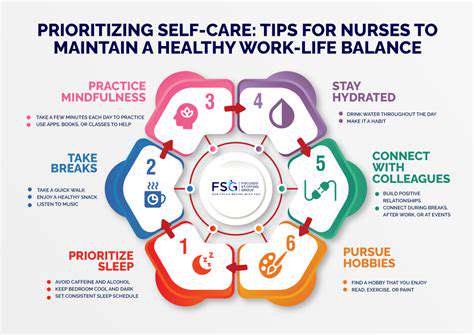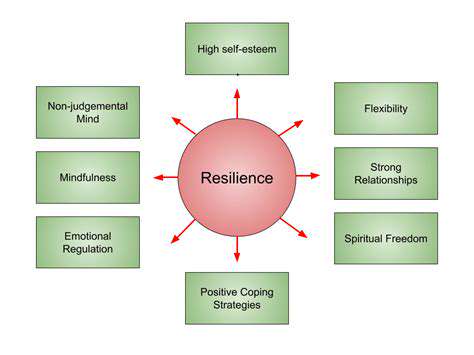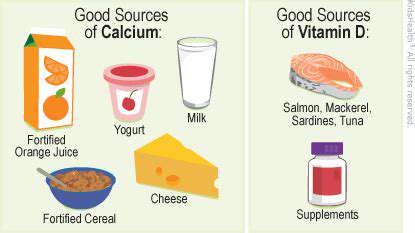Best Supplements for Joint Health [2025 Review]
Collagen: The Building Block of Connective Tissue
Understanding Collagen's Role in Joint Health
Collagen is a crucial protein in the body, forming the structural foundation of connective tissues like cartilage, tendons, and ligaments. These tissues provide support and cushioning for joints, enabling smooth movement and reducing friction. Adequate collagen levels are essential for maintaining healthy joint function, reducing pain, and preventing injuries. A deficiency in collagen production, as we age, can lead to joint deterioration and discomfort.
Maintaining optimal collagen levels is a key component of a comprehensive joint health strategy. This means ensuring sufficient collagen intake from diet and/or supplementation, alongside other lifestyle factors that support healthy joints.
The Impact of Aging on Collagen Production
As we age, our body's natural collagen production slows down significantly. This decline in collagen synthesis directly correlates with the gradual wear and tear on our joints. The loss of collagen leads to decreased elasticity and strength in connective tissues, making joints more susceptible to damage and pain.
Understanding this age-related decline in collagen production is critical for proactively managing joint health throughout life. Implementing strategies to support collagen maintenance becomes increasingly important as we age.
Dietary Sources of Collagen-Supporting Nutrients
Certain foods contain nutrients that play a vital role in supporting collagen synthesis. For example, foods rich in vitamin C, such as citrus fruits, berries, and bell peppers, are essential for collagen production. Similarly, foods rich in vitamin A, like carrots, sweet potatoes, and spinach, contribute to healthy connective tissues. A balanced diet incorporating these nutrient-rich foods can help maintain collagen levels and promote joint health.
Furthermore, incorporating foods rich in amino acids, like glycine, proline, and lysine, is crucial. These amino acids are the building blocks of collagen, and obtaining them through a varied diet is essential for supporting healthy collagen production.
Collagen Supplements: A Potential Solution
Collagen supplements have gained popularity as a way to potentially increase collagen levels in the body. These supplements typically come in various forms, such as powders, capsules, and liquids, making them convenient to incorporate into a daily routine. However, it's important to consult with a healthcare professional before starting any new supplement regimen.
While some studies suggest potential benefits, more research is needed to fully understand the efficacy and long-term effects of collagen supplements on joint health.
Other Lifestyle Factors Affecting Joint Health
Maintaining a healthy weight, engaging in regular low-impact exercise, and getting adequate sleep are all crucial lifestyle factors that contribute to overall joint health. Exercise helps maintain joint flexibility and strength, while a healthy weight reduces stress on joints. Adequate sleep allows the body to repair and regenerate tissues, including connective tissues.
Stress management techniques, such as yoga and meditation, can also play a role in reducing inflammation and promoting overall well-being, which can indirectly benefit joint health.
The Importance of Professional Guidance
While dietary changes and supplements can play a role in supporting joint health, it's essential to consult with a healthcare professional before making significant dietary or supplementation changes. A healthcare provider can assess individual needs, provide personalized recommendations, and ensure that any chosen approach is safe and effective.
They can also help rule out any underlying medical conditions that might be contributing to joint pain or discomfort. Working with a healthcare professional is crucial for a holistic approach to joint health.
Visa programs are complex and vary significantly depending on the country of origin and intended destination. Understanding the specific requirements for each visa category is crucial. This involves researching the necessary documentation, such as passport validity, financial statements, and proof of ties to your home country. Thorough research is essential to avoid costly mistakes and delays in the application process. It is important to pay close attention to the specific guidelines for the desired visa type to ensure all required documents are prepared correctly and submitted on time.

Read more about Best Supplements for Joint Health [2025 Review]
Hot Recommendations
-
*Guide to Managing Gout Through Diet
-
*Best Habits for Financial Well being
-
*How to Build a Routine for Better Mental Health
-
*How to Eat Healthy on a Budget [Tips & Meal Ideas]
-
*Guide to Practicing Self Acceptance
-
*How to Incorporate More Movement Into Your Day
-
*Guide to Managing Chronic Pain Naturally
-
*Guide to Building a Reading Habit for Well being
-
*Top 5 Weight Loss Supplements That Actually Work
-
*Best Exercises for Postpartum Recovery [Beyond Abdominal Work]







![How to Read Nutrition Labels Correctly [Expert Tips]](/static/images/26/2025-06/MakingInformedChoices3ATakingControlofYourDiet.jpg)

![How to Build Muscle Without a Gym [Beginner Guide]](/static/images/26/2025-07/NutritionandRecovery3AFuelingYourGains.jpg)

